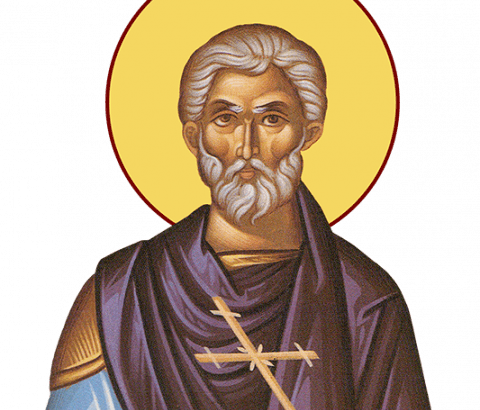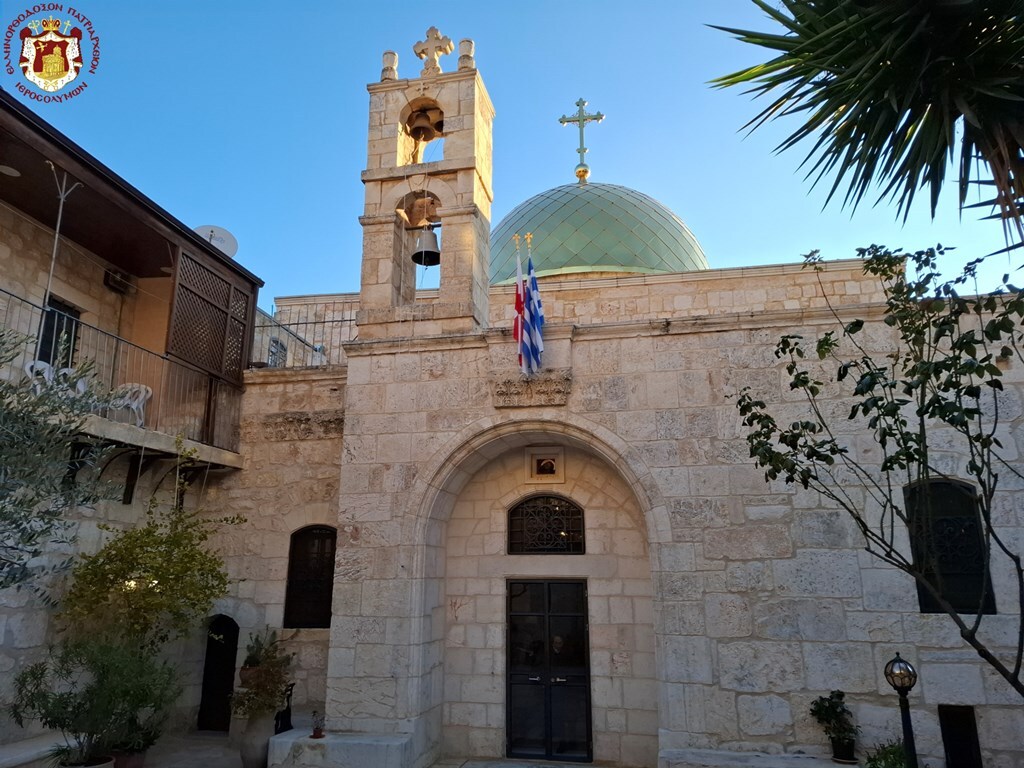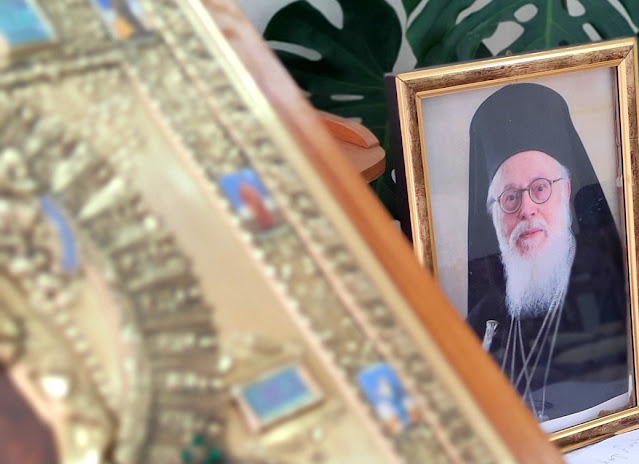Saint Eusygnius the Martyr of Antioch (5 August)


The Martyr Eusignius was born at Antioch in the mid-third century. For sixty years he served in the Roman armies of the emperors Diocletian, Maximian Hercules, Constantius Chlorus, Constantine the Great and his sons. Saint Eusignius was a companion of Saint Basiliscus (March 3 and May 22), and he provided an account of his martyrdom. At the beginning of the reign of Saint Constantine the Great, Saint Eusignius was a witness to the appearance of the Cross in the sky, a prediction of victory.
Saint Eusignius retired in his old age from military service and returned to his own country. There he spent his time in prayer, fasting, and attending the church of God. So he lived until the reign of Julian the Apostate (361-363), who yearned for a return to paganism. Through the denunciation of one of the Antiochian citizens, Saint Eusignius stood trial as a Christian before the emperor Julian in the year 362. He fearlessly accused the emperor of apostasy from Christ, and reproached him with the example of his relative, Constantine the Great, and he described in detail how he himself had been an eyewitness to the appearance of the sign of the Cross in the sky. Julian did not spare the aged Saint Eusignius, then 110 years old, but ordered him beheaded.
This Martyr was from Antioch, and had been a soldier from the time of the reign of Constantius Chlorus (the father of Saint Constantine the Great) to that of Julian the Apostate. He censured Julian’s ungodliness and reminded him that he was the nephew of Saint Constantine the Great, the first Christian Emperor. He reminded him further, that from his tender youth he had been nourished on the milk of piety and instructed in the Faith of Christ, had been a fellow student of Basil the Great and Gregory the Theologian, had been a reader of the Church of Nicomedia, and that he had set all these things at nought and become a transgressor of the promises made in his divine Baptism, and had offered to the idols the adoration that is due to God alone. Reminding the Apostate of all these things and reproving him, he was beheaded in the year 361, having lived altogether 110 years, and been a soldier for more than sixty.
Eusignius served as a soldier under Emperor Maximian, Emperor Constantine the Great, and under Constantine’s sons. He was present during the torture of the holy female Martyr Basiliscus [see May 22]. He saw myriads of angels, and the Lord Jesus Himself, as He received the soul of this holy martyr from the angels. Eusignius fought under Emperor Constantine and saw the heavenly Cross which appeared to the emperor. He served in the army for sixty full years, and during the reign of Constantine’s sons he resigned from military service and settled in Antioch, the place of his birth.
There he lived a God-pleasing life in fasting, prayer and good works. During the time of Julian the Apostate, two men who were arguing on the street asked him to be their judge. He dispensed justice to the correct one, and the man at fault became angry and went to the emperor, accusing Eusignius of being a Christian. The emperor summoned Eusignius to court, but Eusignius strongly denounced the emperor for his apostasy from the Faith and reproached him with the shining example of Constantine the Great. The enraged Julian ordered that he be beheaded. Eusignius was martyred at a ripe old age in the year 362 A.D. and took up his habitation in the Kingdom of Heaven.
Apolytikion of Martyr Eusignius
Fourth Tone
Thy Martyr, O Lord, in his courageous contest for Thee received as the prize the crowns of incorruption and life from Thee, our immortal God. For since he possessed Thy strength, he cast down the tyrants and wholly destroyed the demons’ strengthless presumption. O Christ God, by his prayers, save our souls, since Thou art merciful.
Kontakion of Martyr Eusignius
Plagal of the Fourth Tone
As to a man of godly mind and Martyr for true piety, today the Church doth give honour and glory to the supremely wise Eusignius; and his all-hallowed contests doth she praise, as she ever crieth out: By his prayers, preserve Thy lowly servants, O Thou Who art greatly merciful.




